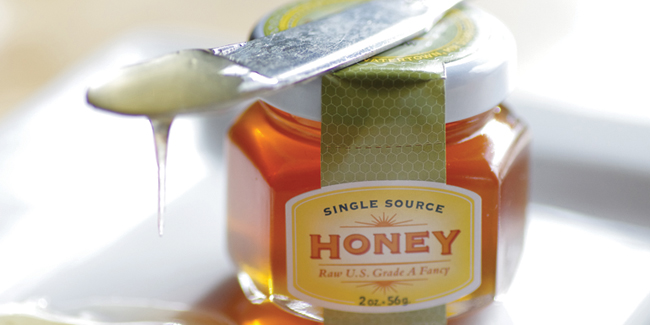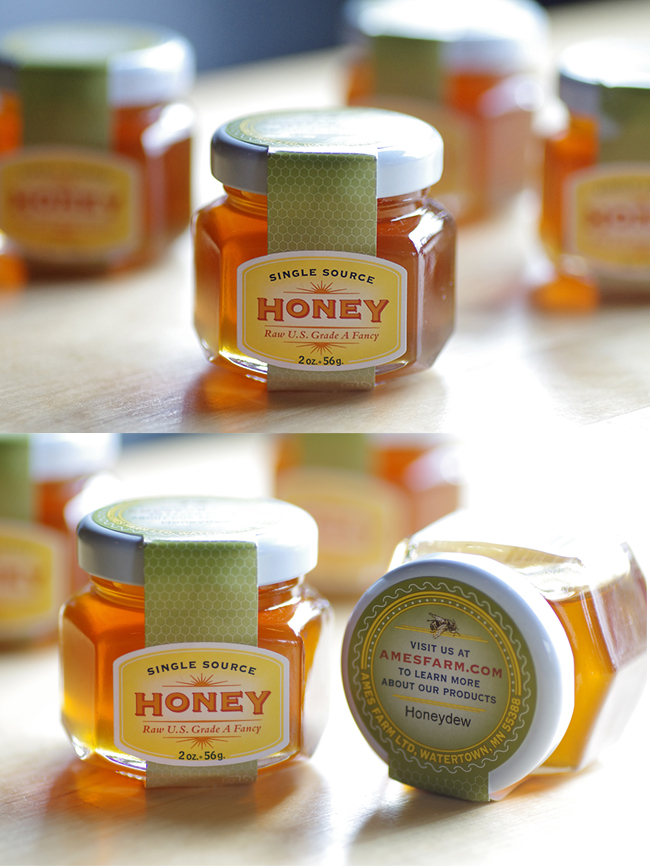
Honey connoisseurship isn’t common. And not just because many honey makers live rural lifestyles and don’t broadcast their practices.
The thing is, many consumers just don’t know that honey is like any other artisan product that takes time and hard work. Like cheese and wine, honey takes its character cues from the land and rainbow of plant life.
Brian Fredericksen — founder and owner of Ames Farm in Delano, Minnesota — champions single-source honey. He says it’s common practice for honey makers to combine the comb from several different bee boxes that have been inhabited over many weeks. This mix of honey made from different plants results in a product that’s hard to distinguish from any other.
Ames Farm is different. “We take one 34-pound box, extract it, bottle it, and that becomes that unique label. Every box that comes in here is scrutinized; it has the date on it,” says Fredericksen.

Honeydew honey is one delightful example of this process.
“Honey comes from plant nectar: trees, shrubs, and flowers,” says Fredericksen. “But honeydew is the only other instance where bees make something that doesn’t come from flowers. This honey comes from tree sap that aphids feed on.” Once the sap passes through the aphid’s digestive system and gets excreted, honeybees collect it.
It turns out aphid doo is excellent. And funky. And not too sweet. Honeydew is caramel-colored, thick, and less acidic than many other honeys. Fredericksen describes it as malty and woodsy, which alludes to honeydew’s nickname in some European countries: forest honey. But this golden syrup also tastes remarkably like sourdough bread or even rye. It’s savory and slightly bitter and hard not to slurp up by the spoonful.
“Up until about two years ago, beekeepers have had this mentality that honey has to be white. Beekeepers write off honeydew [in the U.S.] as, ‘Oh, what a bummer.'” But in fact, honeydew is a rare happening. Bees only collect sap when there’s a dearth of nectar. It’s been over six years since Ames Farm last produced a batch. This earthy stuff is truly fleeting, like a sweaty golden summer.
Find Ames Farm Honeydew at:
Minneapolis Farmers Market
312 E Lyndale Ave
Minneapolis, MN 55405
612.333.1718
Mill City Indoor Farmers Market
704 S 2nd St
Minneapolis, MN 55401
612.341.7580
France 44 Cheese Shop
4351 France Ave S
Minneapolis, MN 55410
612.278.4422
